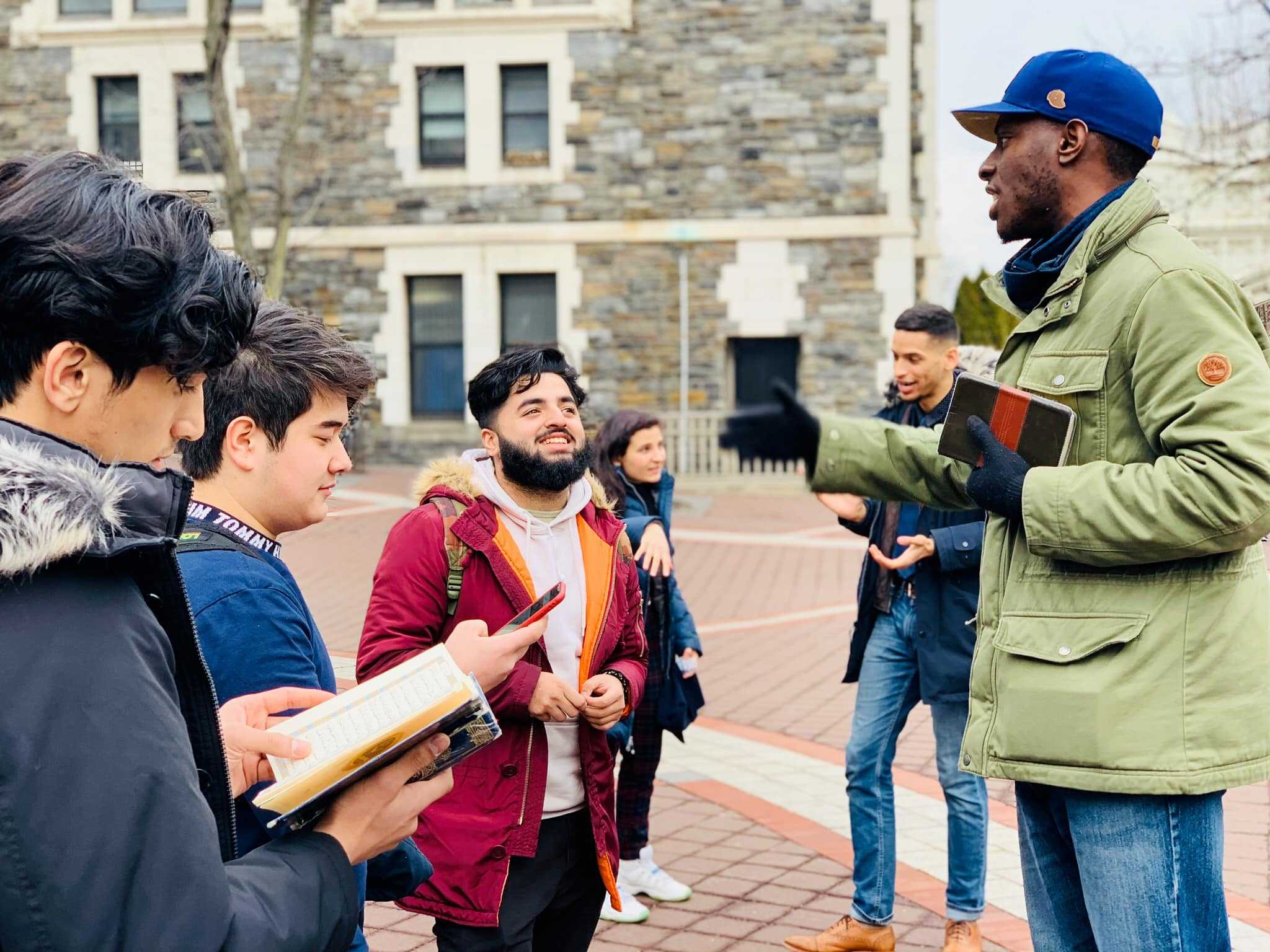US Supreme Court to Hear Case of College Student Seeking Justice After Gospel Preaching Twice Shut Down

WASHINGTON — The U.S. Supreme Court has agreed to hear a case from a former student at Georgia Gwinnett College (GGC) who sued the educational institution after his attempts to preach the gospel on campus were twice shut down. Lower courts had declared the case moot as the college changed its free speech policy after the student sued, and due to the fact that he later graduated, but the now-graduate believes the college should still be held liable for violating his rights.
As previously reported, Chike Uzuegbunam sought in July 2016 to distribute tracts and engage in one-on-one conversations with other students outside of the school library. However, he was soon approached by college officials and informed that he could only engage in expressive activity in one of two free speech zones, and only with a permit.
Uzuegbunam then went through the proper channels and proceeded with his evangelistic endeavors weeks later in a designated free speech zone. He says that he did not use any amplification, nor were his words inflammatory, but he rather simply presented the gospel to students.
“Mr. Uzuegbunam began by discussing the brevity of life and how all men and women have fallen short of God’s commands,” Uzuegbunam’s legal challenge read.
“He continued by explaining how Jesus Christ had come to earth to die on the cross and rise again from the dead in order to provide men and women the only means of obtaining salvation and eternal life. He also explained how this gift of eternal life is available to all by God’s grace and that it is the only way to avoid the penalty for our sins.”
However, approximately 20 minutes later, he was again approached by college officials, who this time told him that complaints had been received that he was disturbing students’ “peace and tranquility” and that he must therefore stop preaching.
Failure to do so would constitute disorderly conduct, Uzuegbunam was warned, as the Student Code of Conduct prohibits activity that “disturbs the peace and/or comfort of person(s).”
He visited the Office of Student Integrity to speak further with officials, but was advised that it is a violation of GGC policy to express a “fire and brimstone message” in any form, including in the free speech zones.
However, according to his lawsuit, GGC officials allowed other students to engage in loud and offensive speech without interference simply because no one complained.
“Defendants have allowed students to engage in offensive forms of speech, including the broadcasting of vulgar, lewd, and obscene music, but stopped Plaintiff from speaking publicly, claiming that someone’s complaint converted his expression into ‘disorderly conduct,’” the lawsuit stated.
At first, the college claimed in court documents that Uzuegbunam’s speech “arguably rose to the level of ‘fighting words,’” but it soon abandoned the argument and eliminated its “free speech zones” to rectify the issue. A district court and the 11th Circuit of Appeals both consequently dismissed the case as moot, as well as due to the fact that Uzuegbunam had graduated.
But Uzuegbunam doesn’t believe that officials should get off scot-free for violating his First Amendment rights. His attorneys with Alliance Defending Freedom (ADF) appealed to the U.S. Supreme Court, and the justices announced on Thursday that they had decided to take the case.
The nation’s highest court will now consider “[w]hether a government’s post-filing change of an unconstitutional policy moots nominal-damages claims that vindicate the government’s past, completed violation of a plaintiff’s constitutional right.”
Read ADF’s petition to the Supreme Court here.
Another student at GGC who is a Christian, Joseph Bradford, joined the lawsuit out of concern that he too would be shut down and potentially subject to disorderly conduct charges.
“Government officials must be held responsible for enacting and enforcing policies that trample students’ constitutionally protected freedoms. If they get off scot-free, they or others can simply do it again,” said ADF Senior Counsel John Bursch in a statement.
“Neither the district court nor the appeals court held Georgia Gwinnett College officials accountable for how they repeatedly mistreated, censored, and intimidated the two students involved in this case, so it’s appropriate for the U.S. Supreme Court to take up the matter.”
Uzuegbunam now leads Magnifying Christ Ministries in New York City, where he is a full-time open-air preacher.
Become a Christian News Network Supporter…







Comments are closed.